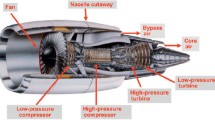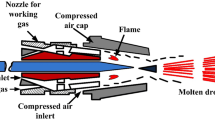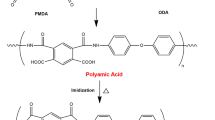Abstract
Molecularly imprinted polyurethanes were used as sensor materials for monitoring the degradation of automotive engine oils. Imprinting with characteristic oils permits the analysis of these complex mixtures without accurately knowing their composition. Mass-sensitive quartz crystal microbalances (QCMs) coated with such layers exhibit mass effects in addition to frequency shifts caused by viscosity, which can be compensated by an uncoated quartz or a non-imprint layer. Incorporation of degradation products into the imprinted coatings is a bulk phenomenon, which is proven by variation of the sensor layer height. Therefore, the resulting sensor effects are determined by the degradation products in the oil.
Similar content being viewed by others
Author information
Authors and Affiliations
Additional information
Received: 5 August 1999 / Revised: 26 October 1999 / Accepted: 1 November 1999
Rights and permissions
About this article
Cite this article
Dickert, F., Forth, P., Lieberzeit, P. et al. Quality control of automotive engine oils with mass-sensitive chemical sensors – QCMs and molecularly imprinted polymers. Fresenius J Anal Chem 366, 802–806 (2000). https://doi.org/10.1007/s002160051574
Issue Date:
DOI: https://doi.org/10.1007/s002160051574




